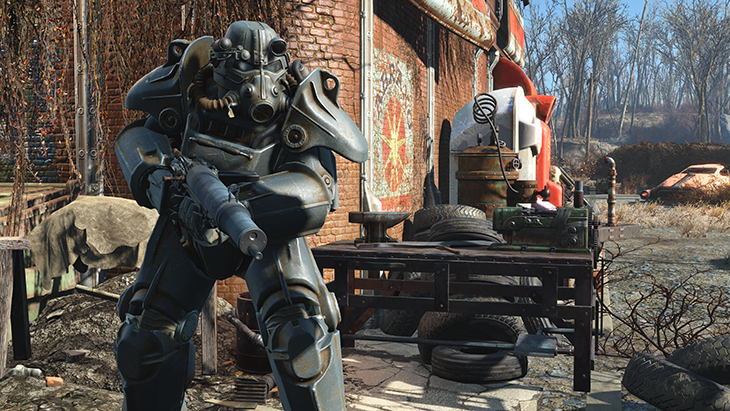There was a time, up until only a few short years ago, that game developers and publishers would create a game, release it, and then move on to the next IP. With video game companies being a money making businesses – or, at least, businesses that try to make some money and be successful – things are changing pretty rapidly.
Now, however, video games are seen less like a product and more like a full-fledged service. Instead of seeing brand new IPs being unveiled, we’re increasingly seeing games that are constantly being updated, patched or somehow improved upon years after release.
And there’s a simple reason for that: developers and publishers want to make as much money out of each game as humanly possible. So far, the list of ways developers can squeeze more money out of players is pretty limited, but it’s increasing pretty regularly – loot boxes, DLC and micro-transactions are only the beginning.
And this “games as a service” isn’t just speculative from the likes of critics and players, developers and publishers are eagerly embracing the term. For example, in Square Enix’s most recent financial report, they stated:
“Titles that have become global hits recently have tended to be offered via the ‘Games as a Service’ model, and we believe this is going to be the mainstream model for gaming in the future. In developing future titles, we will approach game design with a mind to generate recurring revenue streams.”
The statement comes on the heels of Final Fantasy XV becoming a “service” thanks to recent patches and DLC, with more on the way. The list of developers and publishers who have recently made references to games as a service is growing. Electronic Arts and Ubisoft also explicitly mention it in their most recent earnings calls — and even those who haven’t are still following pretty similar strategies.
This big shift was always inevitable. The video game industry is littered with the corpses of game studios that took the fire-and-forget approach. For developers, the best lessons are often learned once you’ve already shipped. Games such as Rainbow Six Siege is living, breathing proof of the concept working pretty well.
With video games that have a long shelf life — and an even longer list of recurring players — “games as a service” is going to stay around for a while yet. It’s becoming such a draw that having a one-and-done approach is quickly becoming irregular for developers.
While this might be good news for some fans, it also has a number of drawbacks. The most prominent one being the fact that, as developers spend more time on games post-launch, they’ll have less time to spend on developing new IP. Having new DLC, patches and more for the likes of Fallout 4 might be great and everything, but new projects might not ever get to see the light of day as publishers look to wring as much money out of sequels and DLC as possible.
One of the major drawbacks, however, could be the use of the ‘games as a service’ model to rush games to a release, glossing over bugs and glitches in order to make a deadline – some of the recent Assassin’s Creed games come to mind. Essentially, developers know that they can release an unfinished, and occasionally broken, game knowing that patches will be released months later in order to fix said bugs/glitches. And this is where the only major concern for gamers comes into play. In many cases, players will have to wait months – possibly even years – in order to get the full experience of a game, as the developers originally envisioned for the game.
Whether the benefits end up outweighing the drawbacks in the future – as looks likely at the moment – players will have to get used to games as a service. If developers have their way, players don’t have much of a choice, so better get used to waiting for the full experience of a game.
What are your thoughts? Let us know in the comments!








Published: Oct 22, 2017 04:26 pm